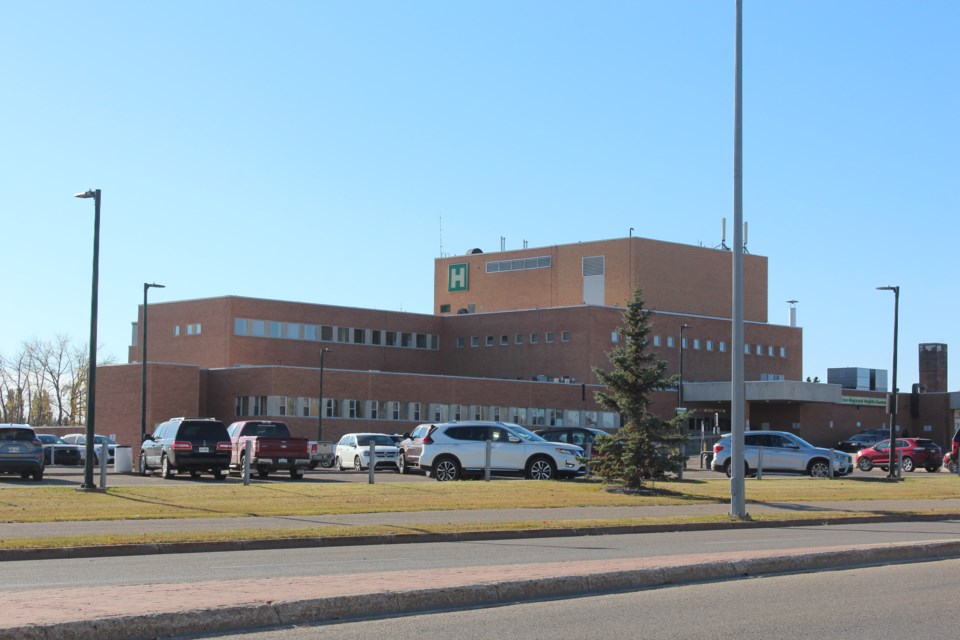YORKTON — The nursing profession within the former Sunrise Health Region is struggling with stress, according to Maggie Hancock, registered nurse and SUN Local 43 president.
–°¿∂ ”∆µ spoke with Hancock ahead of the 2024 Provincial Election to find out what the Saskatchewan Union of Nurses feel are the most pressing issues affecting healthcare in the region.
Hancock said the one word best describing what it's like to be a nurse in the Former Sunrise Health Region is "stressful."
"Very stressful. Lots of stress put on the Yorkton Regional Health Centre right now with all the over-capacity issues in the bigger centres," said Hancock, adding, "it's stressful for the nurses in emergency. Our nurses on the wards. RNs, LPNs, CCAs — it doesn't matter what designation you have. I feel like everyone is feeling that stress."
The situation has been exacerbated by staff shortages, which force the hospital to make drastic decisions.
"For instance — this morning [Oct. 23] — we had a sick call that left the wards short. Then you have to make drastic measures like 'do we have to close beds because we don't have enough nurses.' And then the over-capacity issues flow over into our emergency department and we're putting admissions in our emergency department," said Hancock.
Hancock emphasized that the stress is a daily reality for the staff and said that efforts to address these problems through a provincial nursing task force have been disregarded by the provincial government.
"SUN Provincial has tried for a long time to — at least the past two if not three years — to get the provincial government to make a nursing task force — and that wasn't just registered nurses — that was everyone that's on the front line of healthcare that are nurses. That would include RNs and LPNs."
Hancock recounted how the region lost many experienced nurses due to the stress of the pandemic, along with new graduates who found the conditions overwhelming.
"We lost our late career nurses. Then you had a bunch of nurses graduating into the pandemic and they're like 'oh my goodness I can't do this either.' We lost nurses from both sides of the spectrum."
While there have been some initiatives to bring in internationally educated nurses (IENs), Hancock asserts that these efforts are insufficient.
"We have such an attrition rate that we need to be graduating more nurses out of our own colleges — home grown nurses — giving them a mentorship program," said Hancock.
Hancock said safe staffing levels across the province are SUN's highest priority and stressed the necessity of having more registered nurses at the bedside. As well, Hancock said there is a lack of recognition and support for mid-to-late career nurses from the government.
"As for the mid-to-late career nurse, there's been nothing from this government. There's not even been a thank you."
Hancock also spoke to the frustrations of the general public with regard to wait times at healthcare facilities.
"We don't have enough family doctors in this city. We don't have enough nurse practitioners set up and utilized properly to alleviate some of the stuff that the physicians are backlogged with. Emergency is –°¿∂ ”∆µ used as a doctor's office because people can't get in to see a doctor. We know people are frustrated but that's why the wait times are what they are. Because there are actual emergencies happening in the emergency department ... not that I want to degrade any reason somebody comes to the emergency department," said Hancock, noting certain ailments could be treated at a walk-in clinic, doctor's office or a nurse practitioner's office, "but we just don't have enough."
Despite these challenges, Hancock commended the dedication of the emergency department staff the Yorkton Regional Health Centre.
"They are doing their best in that emergency department. Some days go better than others and they've been running at full bore for months now," said Hancock.
Hancock said SUN has not officially endorsed a party for the upcoming election but encouraged voters to consider the state of healthcare over the past years when making electoral decisions.
"I would just hope people would see that the last [17] years has done nothing for healthcare and I would hope people would see that and know that perhaps it's time for a change," said Hancock.




